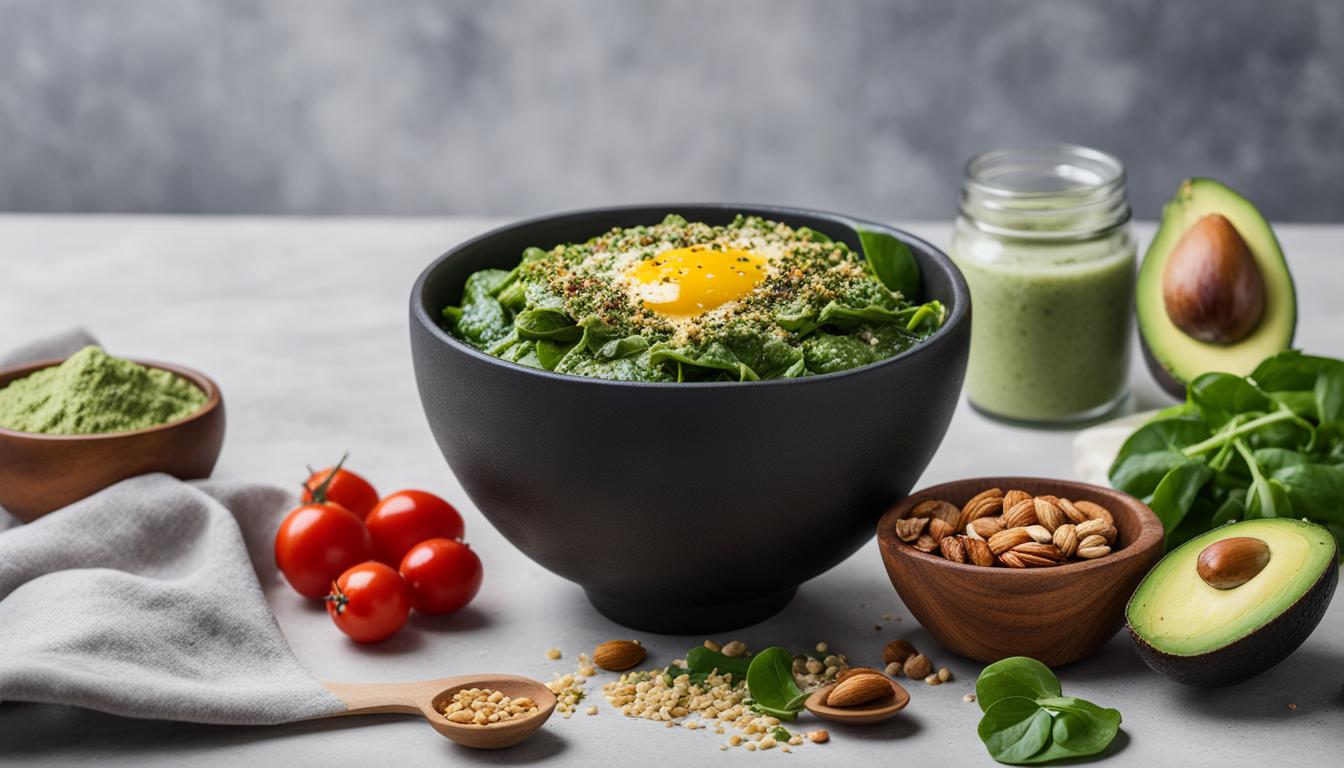Unlock the Sweet Secrets of Keto Xylitol: Enhance Your Keto Journey with this Game-Changing Ingredient!
Brief Explanation of Keto Xylitol and Its Relevance in the Ketogenic Diet
Hey there, keto enthusiasts! Are you ready to unlock the sweet secrets of keto xylitol with me? If you’ve been exploring the world of ketogenic living, you may have come across this game-changing ingredient. So, what exactly is keto xylitol and why is it relevant in the context of the ketogenic diet?
Xylitol is a natural sugar alcohol that is found in many fruits and vegetables. It’s commonly used as a sugar substitute because it has fewer calories and a lower glycemic index than regular sugar. Keto xylitol, in particular, is derived from xylan-rich sources like birch bark. It’s a popular choice for those following the ketogenic diet, as it doesn’t spike blood sugar or insulin levels, making it a great option for satisfying sweet cravings without kicking you out of ketosis.
But what makes keto xylitol even more special in the keto world is its ability to promote dental health and help prevent tooth decay. This is due to its unique properties that inhibit the growth of cavity-causing bacteria. Plus, it’s not metabolized by the oral bacteria that cause tooth decay, making it a win-win for both your sweet tooth and your pearly whites. How amazing is that?
Now, let’s delve deeper into the wonderful world of keto xylitol and uncover how this innovative ingredient can enhance your keto journey.

Health Benefits of Xylitol on Keto Diet
Let’s delve into the fantastic health benefits of incorporating xylitol into your ketogenic diet. Not only does it serve as a fantastic sugar substitute, but it also offers a variety of additional health advantages that can enhance your overall well-being.
Promoting Dental Health
One of the remarkable benefits of xylitol is its positive impact on dental health. Research has shown that xylitol can help prevent tooth decay and cavities by inhibiting the growth of the bacteria that cause these issues. In fact, a study published in the American Journal of Dentistry found that xylitol consumption led to a significant reduction in plaque formation and tooth decay.
Aiding in Blood Sugar Control
For individuals following a ketogenic diet, maintaining stable blood sugar levels is crucial. Xylitol has a low glycemic index, meaning it has a minimal impact on blood sugar and insulin levels. Incorporating xylitol into your diet can help control blood sugar spikes, making it a valuable sweetener for those on a keto journey.
Contributing to Weight Management
Weight management is a key aspect of the ketogenic lifestyle, and xylitol can be a helpful ally in this regard. Studies have suggested that xylitol may contribute to feelings of fullness and satiety, potentially reducing overall calorie intake. Additionally, its lower calorie content compared to traditional sugar makes it a favorable option for those looking to manage their weight while following a ketogenic diet.
By embracing the use of xylitol in your ketogenic journey, you not only reap the benefits of a sweet taste without the guilt but also promote dental health, enhance blood sugar control, and contribute to your weight management goals. It’s a versatile and valuable addition to your keto lifestyle!
Incorporating Xylitol into Keto Recipes
When it comes to the ketogenic diet, finding the right sugar substitute can be a game-changer. Xylitol is a fantastic option for enhancing flavor and sweetness in keto-friendly meals and desserts, without compromising ketosis. Let’s explore some tips and delicious recipes to help you incorporate xylitol into your keto lifestyle.
What is Xylitol and Why is it Keto-Friendly?
Xylitol is a sugar alcohol that occurs naturally in some fruits and vegetables. It’s commonly used as a sugar substitute because it has fewer calories and a lower glycemic index than table sugar. This means that it has minimal impact on blood sugar and insulin levels, making it an excellent option for those following a ketogenic lifestyle.
Tips for Using Xylitol in Keto-Friendly Recipes
When incorporating xylitol into your keto recipes, there are a few essential tips to keep in mind:
- Measure accurately: Xylitol is as sweet as sugar, so you can use it in a 1:1 ratio in recipes that call for sugar. However, it’s essential to measure it accurately to avoid over-sweetening your dishes.
- Be cautious with pets: Xylitol can be toxic to dogs, so be mindful of this when using it in your kitchen. Store it safely and ensure that any spills are cleaned up promptly.
- Expect a cooling effect: Xylitol has a cooling sensation in the mouth, similar to mint. Keep this in mind when using it in recipes, as it can affect the overall flavor profile of your dishes.
Keto-Friendly Xylitol Recipes
Now, let’s dive into some mouthwatering keto-friendly recipes that incorporate xylitol to satisfy your sweet cravings:
Keto-Friendly Xylitol Chocolate Chip Cookies
Ingredients:
- Almond flour
- Xylitol
- Butter or coconut oil
- Sugar-free chocolate chips
- Eggs
- Baking powder
- Vanilla extract
- Salt
Instructions:
- Preheat your oven to 350°F.
- Cream together the xylitol and butter (or coconut oil) until smooth.
- Beat in the eggs and vanilla extract.
- In a separate bowl, whisk together the almond flour, baking powder, and salt.
- Add the dry ingredients to the wet ingredients and mix well.
- Stir in the sugar-free chocolate chips.
- Drop spoonfuls of dough onto a baking sheet and flatten slightly.
- Bake for 10-12 minutes, or until golden brown.
- Allow the cookies to cool before enjoying these delightful keto treats!
These keto-friendly chocolate chip cookies are perfect for satisfying your sweet tooth while staying in ketosis.
Keto-Friendly Xylitol Lemon Cheesecake Fat Bombs
Ingredients:
- Cream cheese
- Xylitol
- Lemon juice and zest
- Coconut oil
- Vanilla extract
Instructions:
- Mix together the cream cheese, xylitol, lemon juice, lemon zest, and vanilla extract until smooth.
- Roll the mixture into small balls and place them on a parchment-lined tray.
- Chill the fat bombs in the freezer until firm.
- Store them in the fridge and enjoy these delightful, tangy fat bombs whenever you need a burst of flavor and energy!
These lemon cheesecake fat bombs are a perfect keto-friendly snack or dessert, and the addition of xylitol provides just the right amount of sweetness.
With these tips and recipes, you can easily incorporate xylitol into your keto lifestyle, unlocking the sweet secrets of this game-changing ingredient.
Understanding the Impact of Xylitol on Insulin Levels
One of the primary concerns for individuals following a ketogenic lifestyle is the impact of sweeteners on insulin levels and blood sugar regulation. Understanding how xylitol affects insulin levels and blood sugar is crucial for making informed choices while sweetening your keto treats.
Research has shown that xylitol has a minimal impact on insulin levels in the body. A study published in the American Journal of Clinical Nutrition found that xylitol has a negligible effect on blood glucose and insulin levels, making it a suitable sweetener for individuals following a ketogenic diet.
Unlike regular sugar, which causes a rapid spike in blood glucose and insulin levels, xylitol is absorbed more slowly in the body. This slower absorption helps in preventing dramatic fluctuations in blood sugar and insulin, which is highly favorable for those aiming to maintain a state of ketosis.
For those on a keto journey, incorporating xylitol into their recipes provides a sweet indulgence without derailing their efforts to maintain stable blood sugar and insulin levels.
The Impact of Xylitol on Blood Sugar Regulation
When it comes to blood sugar regulation, xylitol is an excellent choice for individuals following a ketogenic lifestyle. Studies have indicated that xylitol has a lower glycemic index compared to regular sugar. This means that it has a smaller effect on blood glucose levels, which is fundamental for those striving to stay in ketosis.
A study published in the European Journal of Clinical Nutrition demonstrated that consuming xylitol did not lead to a rapid increase in blood sugar levels in both healthy individuals and those with diabetes. This research further supports the suitability of xylitol for individuals on a ketogenic diet, as it does not hinder the body’s ability to maintain a state of ketosis.
Moreover, due to its low impact on blood sugar levels, xylitol can be a valuable ally in managing sweet cravings without causing a significant disturbance to the carefully balanced state of ketosis.
Overall, the impact of xylitol on blood sugar regulation aligns with the goals of a ketogenic lifestyle, making it a compelling choice for those seeking a compatible sweetener that supports their dietary objectives.

Potential Risks and Side Effects of Xylitol on Keto
So, we’ve talked about all the amazing benefits of Xylitol on a ketogenic diet, but like with anything, there’s always another side to the story. Let’s delve into some potential risks and side effects of consuming Xylitol, especially on a keto lifestyle.
Digestive Issues
While Xylitol is considered safe for most people, consuming it in large amounts can lead to digestive issues. Some individuals may experience symptoms like bloating, gas, and diarrhea, especially when first introducing Xylitol into their diet. This is because Xylitol is partially absorbed by the body and can ferment in the gut, causing these discomforts.
Allergic Reactions
Although rare, some people may have an allergic reaction to Xylitol. Allergic responses can manifest as hives, itching, swelling, or difficulty breathing. If you have a known allergy to other sugar alcohols or experience any of these symptoms after consuming Xylitol, it’s crucial to seek medical attention immediately.
Recommendations for Moderation
Despite these potential risks, the good news is that most people can enjoy the benefits of Xylitol without experiencing adverse effects. The key here is moderation. If you’re new to including Xylitol in your keto journey, start with small amounts and gradually increase your intake as your body adjusts.
It’s also essential to spread out your Xylitol consumption throughout the day rather than consuming a large amount in one go. This can help minimize the likelihood of experiencing digestive discomfort while still reaping the sweet rewards of Xylitol on your keto diet.
As with any new addition to your diet, it’s always a good idea to consult with a healthcare professional, especially if you have pre-existing digestive issues or allergies. They can provide personalized recommendations based on your specific health situation, ensuring that you can enjoy the benefits of Xylitol while minimizing any potential risks.
At the end of the day, being mindful of how your body responds to Xylitol and making informed choices about its consumption can help you harness its sweetness without any unwelcome side effects.
Choosing the Right Xylitol Products for Keto
So, you’ve decided to embrace the ketogenic lifestyle and are looking for the perfect sugar substitute to enhance your sweet treats. Look no further than xylitol! This natural sugar alcohol not only sweetens your favorite dishes but also offers a range of health benefits, making it a game-changer for your keto journey. However, not all xylitol products are created equal. Here’s a handy guide on selecting high-quality xylitol products that are suitable for a ketogenic diet, including tips on reading labels and avoiding hidden sugars or additives.
Understanding Xylitol and Its Benefits for Keto
Before diving into the selection process, let’s understand why xylitol is a fantastic choice for a keto lifestyle. Xylitol is a sugar alcohol that occurs naturally in many fruits and vegetables. It’s commonly used as a sweetener in sugar-free or low-sugar products due to its low glycemic index, meaning it has little to no effect on blood sugar and insulin levels. This makes it an ideal sweetener for those following a ketogenic diet, which focuses on minimizing sugar and carbohydrate intake.
Assessing Product Quality
When choosing xylitol for your ketogenic journey, it’s crucial to select high-quality products to ensure you’re getting the best benefits. Opt for brands that use non-GMO sources and employ sustainable production methods. Look for xylitol products that are certified organic and free from any chemical additives or artificial sweeteners. Quality xylitol should have a crystalline texture with a taste similar to sugar, making it a seamless substitution in your keto recipes.
Reading Labels Like a Pro
One of the key skills for selecting high-quality xylitol products for your keto journey is knowing how to read labels effectively. Always check the ingredients list for any hidden sugars or additives that could impact your ketosis. Some xylitol products may include fillers or bulking agents that add extra carbohydrates, so be on the lookout for maltodextrin, dextrose, or other sugar derivatives. Additionally, ensure that xylitol is listed as the primary ingredient to guarantee you’re getting the pure, keto-friendly sweetener you desire.
Choosing the Right Form
Xylitol comes in various forms, including granules, powdered, and liquid. When selecting xylitol for your keto recipes, consider the form that best suits your culinary needs. Granulated xylitol is perfect for baking and sweetening beverages, while powdered xylitol blends seamlessly into frostings and fillings. Liquid xylitol is ideal for sweetening drinks or creating sugar-free syrups. By choosing the right form, you can effortlessly incorporate xylitol into your ketogenic lifestyle.
By following these tips and guidelines, you can confidently select high-quality xylitol products that align with your ketogenic diet, allowing you to enjoy sweet indulgences without derailing your health goals.
Conclusion: Embracing Xylitol on Your Keto Journey
Congratulations on reaching the end of this sweet and informative journey through the world of keto xylitol! As we conclude, let’s summarize the key points we’ve discussed and emphasize the crucial role of xylitol in the context of the ketogenic diet, especially for individuals seeking a sugar alternative.
The Sweet Summary
Throughout this article, we’ve delved into the fascinating realm of keto-friendly sugar substitutes, with a particular focus on the standout ingredient – xylitol. We’ve uncovered its origins, its natural sources, its negligible impact on blood sugar levels, and its calorie content, all of which make it an attractive option for those following a ketogenic lifestyle.
We’ve also explored the numerous benefits of xylitol, from its tooth-friendly properties to its prebiotic effects and weight management support. Furthermore, we’ve addressed the potential digestive discomfort that may arise from excessive consumption of xylitol and offered helpful tips to incorporate it into your diet gradually.
Xylitol’s Role in the Ketogenic Diet
Now, let’s delve deeper into the crucial role of xylitol in the context of the ketogenic diet. For individuals seeking a sugar alternative while embracing the keto lifestyle, xylitol offers a game-changing solution. With its low glycemic index and minimal impact on insulin levels, xylitol can be seamlessly integrated into a keto meal plan without disrupting ketosis.
Moreover, xylitol’s ability to promote dental health by inhibiting the growth of cavity-causing bacteria makes it a standout choice for those on a low-sugar diet, such as the ketogenic diet. By substituting traditional sugar with xylitol in your favorite keto-friendly desserts and beverages, you can satisfy your sweet tooth without compromising your oral hygiene or blood sugar control.
Additionally, the prebiotic nature of xylitol offers digestive support, nurturing the beneficial bacteria in the gut and contributing to overall gut health – a vital component of overall well-being, especially when following a specialized diet such as keto.
It’s important to note that while xylitol plays a valuable role in a ketogenic diet, moderation is key. As with any ingredient, it’s essential to consume xylitol in recommended amounts to avoid potential digestive discomfort, especially when it’s introduced to your diet for the first time.
Embrace the Versatility of Xylitol
As you continue your keto journey, consider incorporating xylitol into your culinary creations and everyday routines. Whether it’s adding a spoonful to your morning coffee, using it to sweeten your homemade keto treats, or even creating refreshing xylitol-sweetened beverages, the possibilities are endless.
By embracing xylitol as your go-to sugar alternative, you’re not only enhancing the flavor of your meals and snacks but also prioritizing your dental health and overall well-being, all while staying true to your ketogenic goals.
So, here’s to a sweeter, healthier, and more vibrant keto journey with xylitol by your side!
Thank you for joining us on this enlightening exploration of keto xylitol. May your keto experience be filled with delicious moments and thriving wellness as you incorporate this game-changing ingredient into your daily life.


